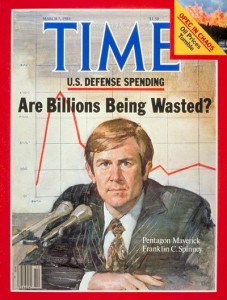
The Legacy of Timothy Geithner
By SIMON JOHNSON
New York Times, 17 January 2013
Simon Johnson, former chief economist of the International Monetary Fund, is the Ronald A. Kurtz Professor of Entrepreneurship at the M.I.T. Sloan School of Management and co-author of White House Burning: The Founding Fathers, Our National Debt, and Why It Matters to You.
“Too big to fail is too big to continue. The megabanks have too much power in Washington and too much weight within the financial system.” Who said this and when?
The answer is Peggy Noonan, the prominent conservative commentator, writing recently in The Wall Street Journal.
. . . . . . . .
As Ms. Noonan puts it bluntly: “People think the G.O.P. is for the bankers. The G.O.P. should upend this assumption.”
This is a significant opportunity for anyone with clear thinking on the right – someone looking for a Teddy Roosevelt trustbusting or Nixon-goes-to-China moment. Again, Ms. Noonan gets it right: “In this case good policy is good politics. If you are a conservative you’re supposed to be for just treatment of the individual over the demands of concentrated elites.”
Recall that some grass roots conservatives are already there: House Republicans initially voted down TARP, the former presidential candidate Jon Huntsman’s plan to end too big to fail received widespread applause from many Republicans and a number of influential commentators, including George Will and Ms. Noonan, have advocated ending too big to fail.
This would play well in the Republican presidential primaries – and even better in the general election. Watch PBS “Frontline” on Jan. 22 for an articulate presentation of why serious potential financial crimes were not prosecuted during the first Obama administration, and think about how to turn these facts into political messages.
A smart candidate could even mobilize plenty of financial-sector support in favor of breaking up or otherwise restricting the too-big-to-fail financial entities. The megabanks have very few genuine friends.
The lasting legacy of Timothy Geithner is to create the perfect electoral issue for Republicans. Will they seize it?
Phi Beta Iota: John McCain had the right instincts in suspending his campaign and coming back to Washington DC in October 2008, but his Bushie staff set him up to fail by preventing Robert Steele from reaching McCain with the simply suggestion that he announce his intent, if elected, to place a nation-wide moratorium on all foreclosures and eviction, and self-insure the public from the bottom up. McCain was betrayed from within at the same time that Obama broke his promise to limit himself to public funding, and embraced all sources of funding, $300 million of which have still not been accounted for. Washington does not have a fiscal crisis. It has an integrity chasm. All of these problems are readily resolvable if the President has both the intelligence (decision-support) that is not available to him now, and the integrity to use that intelligence in the public interest.



